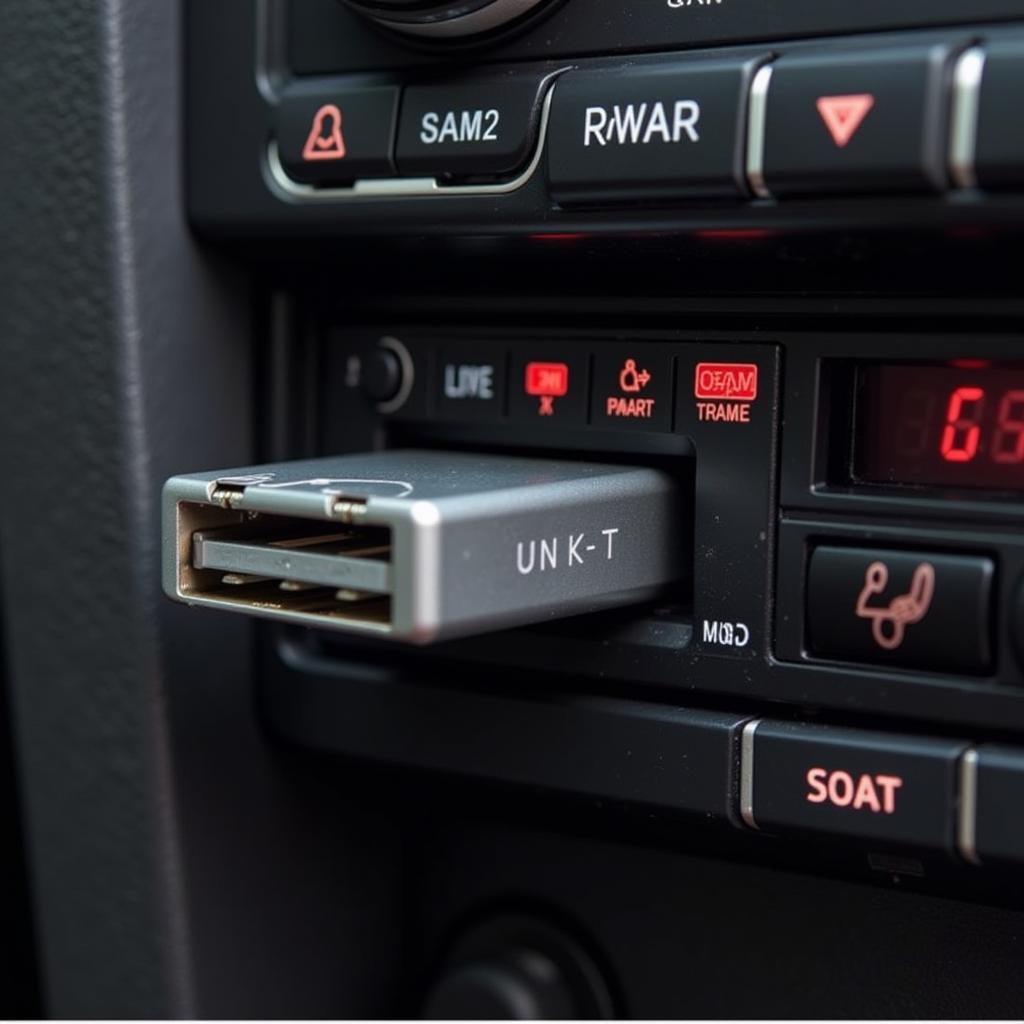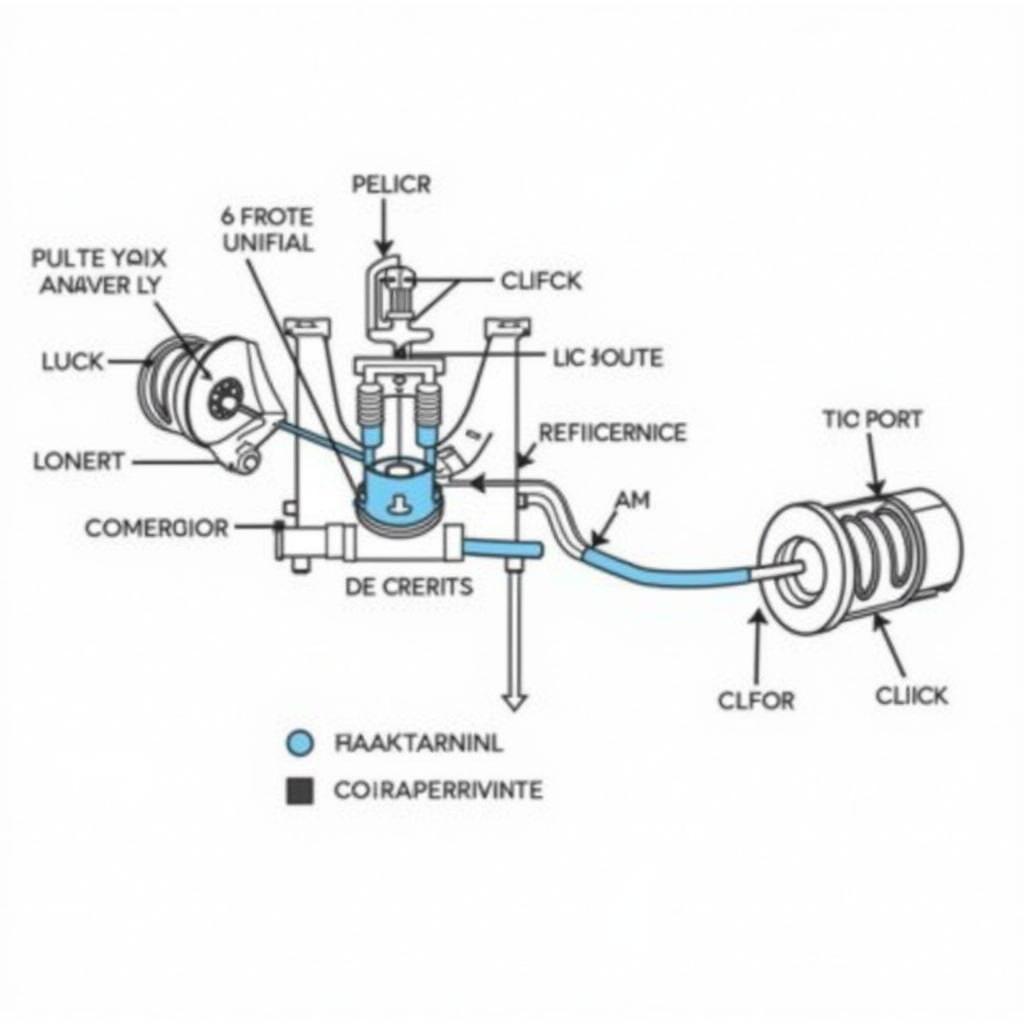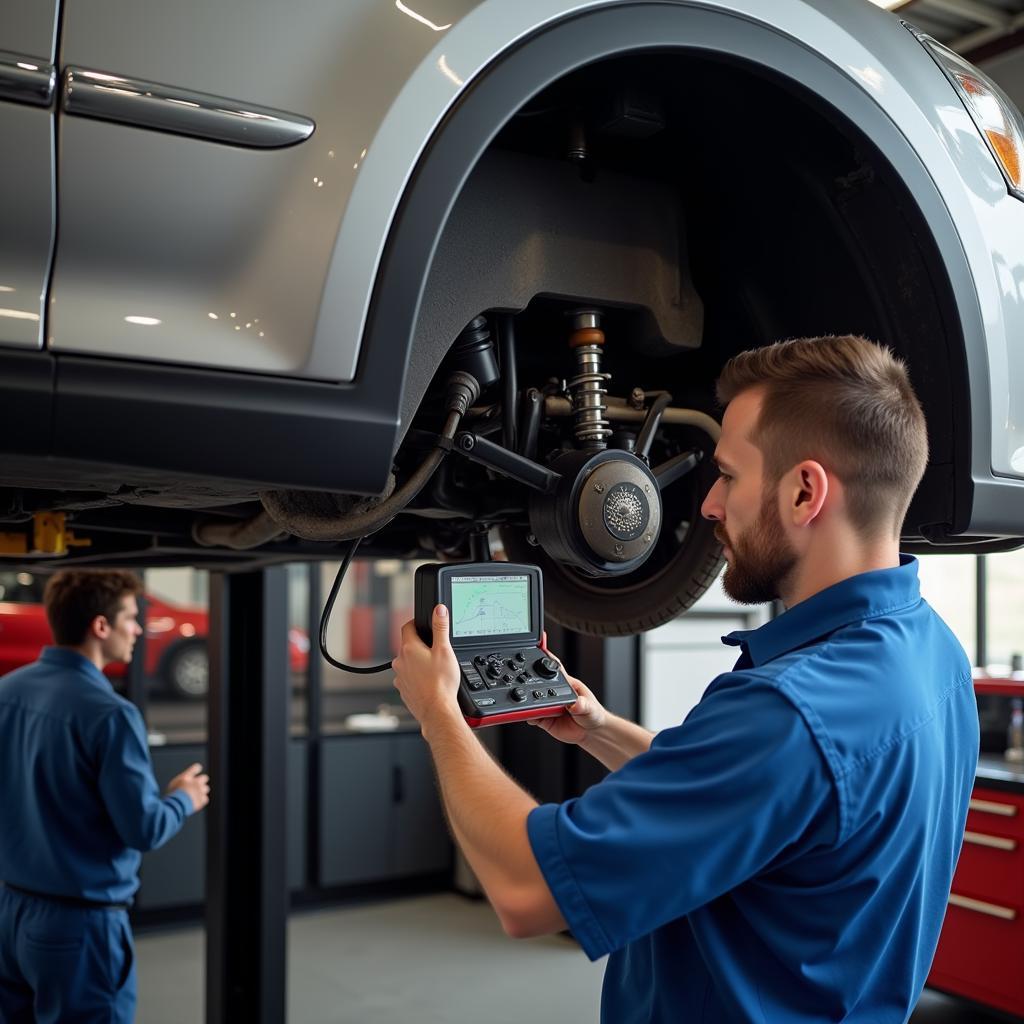The car’s Instrument Cluster Module (ICM) is a crucial component that displays vital information to the driver, such as speed, fuel level, engine temperature, and warning lights. When the ICM malfunctions, it can be frustrating and dangerous, leaving you with a dashboard full of confusing errors or a complete blackout.
This article will dive deep into the common issues that can arise with your car’s ICM, providing you with a comprehensive guide to identify, diagnose, and potentially resolve these problems. Whether you are a car owner looking for helpful tips on maintaining your vehicle or a mechanic aiming to enhance your troubleshooting skills, this guide will serve as a valuable resource.
What is a Car’s ICM?
The Instrument Cluster Module, also known as the instrument cluster, is a complex electronic unit in your car that receives and displays data from various sensors and systems. It serves as a central hub for critical information, acting as the driver’s interface to the car’s internal workings.
Common Car ICM Problems
Several issues can arise with a car’s ICM, leading to various symptoms, including:
1. Display Issues
- Dim or flickering display: This could indicate a faulty backlight or a problem with the ICM’s power supply.
- Blank or black display: This could be caused by a faulty ICM, a blown fuse, or a connection issue.
- Erratic or incorrect readings: This could be due to faulty sensors, a malfunctioning ICM, or a software glitch.
- Pixelated or distorted display: This can be a sign of a damaged LCD screen or a malfunctioning ICM.
2. Gauge Malfunctions
- Speedometer not working: This could be due to a faulty speed sensor, a broken cable, or a malfunctioning ICM.
- Fuel gauge not working: A faulty fuel level sensor, a broken wire, or a faulty ICM could cause this issue.
- Temperature gauge not working: This could be due to a broken wire, a malfunctioning coolant temperature sensor, or a problem with the ICM.
3. Warning Lights
- Multiple warning lights illuminated: This usually indicates a serious problem with the vehicle’s systems, and you should seek professional help immediately.
- Warning lights flashing: This could be a sign of a malfunctioning ICM or a short circuit in the wiring.
How to Diagnose Car ICM Problems
Diagnosing ICM problems requires a methodical approach and specialized tools. Here’s a step-by-step guide:
- Visual Inspection: Begin by visually inspecting the ICM itself. Look for any obvious signs of damage, such as cracks, loose connections, or corrosion.
- Check for blown fuses: Check the fuses associated with the ICM in the fuse box. If a fuse is blown, replace it with a new one of the same amperage.
- Inspect the wiring: Look for any broken, frayed, or corroded wires leading to the ICM. Repair or replace damaged wires.
- Check for power: Use a multimeter to check for power going to the ICM. If there is no power, investigate the power supply circuit.
- Run a diagnostic test: Use an OBD2 scanner to read the diagnostic trouble codes (DTCs) stored in the ICM’s memory. The DTCs will provide valuable insights into the specific issue.
Common Causes of Car ICM Problems
- Electrical issues: Faulty wiring, loose connections, blown fuses, and short circuits can all contribute to ICM problems.
- Physical damage: Impacts, vibrations, or water damage can damage the ICM.
- Software glitches: ICM software updates can sometimes cause malfunctions.
- Age and wear: Over time, the ICM’s electronic components can wear out, leading to malfunctions.
- Incorrect installation: Improper installation of an aftermarket ICM or other electrical components can lead to issues.
Repairing or Replacing a Car ICM
Depending on the severity of the problem, you may need to repair or replace your car’s ICM.
Here are some things to consider:
- Repairing an ICM: If the problem is due to a minor electrical issue, you might be able to repair the ICM yourself. However, repairing ICMs is usually a complicated task requiring specialized knowledge and equipment.
- Replacing an ICM: If the ICM is damaged beyond repair, you’ll need to replace it. Replacing an ICM is a more complex process than replacing a simple component. You’ll need to ensure you get the correct ICM for your car model and year.
ICM Problems and Safety
Malfunctioning ICMs can pose a significant safety hazard. Here are some reasons why:
- Loss of vital information: A faulty ICM can prevent you from accessing crucial information, such as speed, fuel level, and warning lights.
- Misleading information: An ICM with faulty sensors or software errors can provide incorrect information to the driver, potentially leading to dangerous decisions.
- Inability to use safety features: Some safety features, such as anti-lock brakes and traction control, rely on data from the ICM. A malfunctioning ICM can disable these systems, putting you at risk.
Expert Advice:
“The best way to prevent ICM problems is to perform regular maintenance on your car’s electrical system. This includes checking fuses, inspecting wiring, and ensuring all connections are secure. You should also have your ICM checked by a qualified mechanic during regular car service.”
– David Sanchez, Automotive Technician
“If you suspect your ICM is malfunctioning, take your car to a reputable mechanic for diagnosis and repair. Don’t attempt to repair the ICM yourself unless you have extensive experience and the proper tools.”
– Emily Jones, Automotive Electrician
FAQ
Q: Can I replace an ICM myself?
A: While some car owners are comfortable with DIY repairs, replacing an ICM is usually a complex and potentially dangerous task. It’s generally best left to a qualified mechanic.
Q: How often should I have my ICM inspected?
A: It’s a good practice to have your ICM checked during regular car service, which typically occurs every 5,000-10,000 miles.
Q: What are the signs of a dying ICM?
A: The signs of a dying ICM can vary. However, some common indicators include erratic gauge readings, multiple warning lights, a blank display, and intermittent electrical problems.
Q: What is the average cost to replace an ICM?
A: The cost of replacing an ICM can vary widely depending on the make and model of your car. The cost can range from a few hundred dollars to several thousand dollars.
Conclusion
Car Icm Problems can be a major inconvenience and a potential safety risk. It is crucial to be aware of common symptoms, causes, and how to diagnose these issues. While attempting repairs yourself is possible in some cases, professional help is often necessary to ensure proper diagnosis and repair. For any electrical issues related to your car, we recommend seeking assistance from a qualified mechanic or contacting AutoTipPro. We are here to help.
For assistance with your car’s electrical system, please contact us at:
- Phone: +1 (641) 206-8880
- Address: 500 N St Mary’s St, San Antonio, TX 78205, United States
Remember, regular car maintenance and prompt attention to potential issues can help you avoid costly repairs and keep your vehicle running smoothly.







Leave a Reply